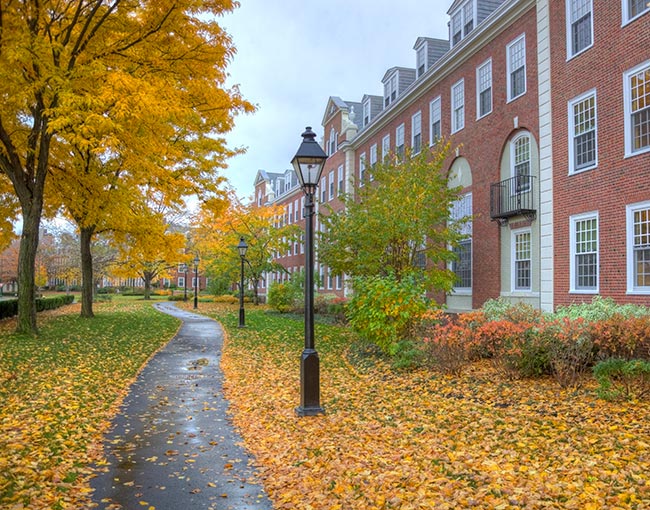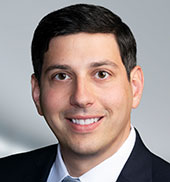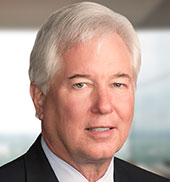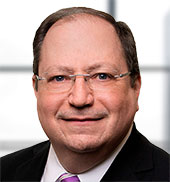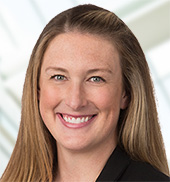One of the more common questions we receive in our higher education practice concerns whether an institution may offer a student or alumni referral program without running afoul of federal law. Or, more specifically, whether such a program violates the incentive compensation regulations enforced by the U.S. Department of Education. Invariably, our response is that an institution considering such a program should proceed with caution.
The regulations addressing incentive compensation, located at 34 CFR 668.14(22)(i), require that as a condition of participation in the federal financial aid programs, an institution must agree:
- “It will not provide any commission, bonus, or other incentive payment based directly or indirectly upon success in securing enrollments or financial aid to any person or entity engaged in any student recruiting or admission activities or in making decisions regarding the awarding of title IV, HEA program funds, except that this limitation does not apply to the recruitment of foreign students residing in foreign countries who are not eligible to receive title IV, HEA program funds.”
Prior to July 1, 2011, the regulations provided no definition of the phrase “person or entity engaged in any student recruiting or admission activities or in making decisions regarding the awarding of title IV, HEA program funds.” In the absence of any specific definition, the Department always took the position that the broad language of the incentive compensation law extended to any person engaged in recruiting prospective students, including currently enrolled students and alumni of the institution. And in fact, the law included a “safe harbor” provision that spoke specifically to the limitations on gifts to students or alumni. Under this former safe harbor, the awarding of token gifts to an institution’s students or alumni was permitted, “provided that the gifts are not in the form of money, no more than one gift is provided annually to an individual, and the cost of the gift is not more than $100.”
Effective July 1, 2011, the incentive compensation regulations were revised, and the safe harbor referenced above was eliminated. In the preamble to the proposed regulations, the Department offered the following comment concerning the removal of this particular safe harbor, evidencing the agency’s continuing view that referral programs involving gifts to students and alumni can be problematic:
- “…students oft-times do things with little reflection if it brings an immediate reward, and such things as a $100 gift card constitute a substantial incentive for many students. Further, the fair market value of an item might be considerably greater than its cost. A high value item for which the institution paid a minimal cost could not be considered a token gift. As a result, even the provision of token gifts to students and alumni is fraught with the potential for abuse, creating the need to remove this safe harbor.”
This commentary, and the removal of the related safe harbor, suggest strongly the Department’s belief that all gifts to students or alumni should be prohibited, even where such gifts are “tokens.”
And yet, at the same time the Department removed the noted safe harbor and made the associated comments, it also opened the door for such programs. For the first time, the Department added to the regulations a definition of the term “entity or person engaged in any student recruitment or admission activity or in making decisions about the award of financial aid.” Specifically, the Department added 34 CFR 668.14(b)(22)(iii)(C), which provides:
- “Entity or person engaged in any student recruitment or admission activity or in making decisions about the award of financial aid means—
(1) With respect to an entity engaged in any student recruitment or admission activity or in making decisions about the award of financial aid, any institution or organization that undertakes the recruiting or the admitting of students or that makes decisions about and awards title IV, HEA program funds; and
(2) With respect to a person engaged in any student recruitment or admission activity or in making decisions about the award of financial aid, any employee who undertakes recruiting or admitting of students or who makes decisions about and awards title IV, HEA program funds, and any higher level employee with responsibility for recruitment or admission of students, or making decisions about awarding title IV, HEA program funds.” (Emphasis added)
Of considerable significance, the new definition limited the definition of “person” to employees only. Thus, when the new regulations became effective, the law seemed specifically to exclude students, alumni, and for that matter, any non-employee, from coverage. And as previously noted, the safe harbor discussing the limitation on gifts or payments to students and alumni was eliminated, as well. Also of note, the guidance in the Federal Register and elsewhere that accompanied the final regulations did not touch on this specific point.
Thus, the current regulations, at least as a technical matter, seem to exclude from the incentive compensation prohibition payments to students and alumni for referrals. And indeed, many institutions now are offering referral programs for students and alumni, which include small gifts to individuals who make the referrals. Certain accreditors have even offered best practices for administering such referral programs, clearly implying their conclusion that offering such programs is permissible.
Nonetheless, it seemed incongruous in the extreme that the Department would act to eliminate the restrictions on gifts to students and alumni in 2011, when the general purpose of the rulemaking was to tighten and strengthen program integrity, and in particular, the incentive compensation laws. Moreover, as noted above, the Department explicitly stated in the preamble to the proposed regulations its view that referral gifts to students and alumni potentially create unwanted incentives. Also of note, the Department and the DOJ both have been actively enforcing the incentive compensation prohibition in recent years, and there is little about the current political or regulatory climate that suggests that this trend is likely to change anytime soon.
For all these reasons, we suggest that any institution considering a referral program for students or alumni move forward deliberately and with caution, and only if the institution is comfortable tolerating the associated risk. The letter of law appears to permit such programs, but it is hard to shake the feeling that the Department might take a different view.
Aaron Lacey is a partner in Thompson Coburn’s Higher Education practice, and editorial director of REGucation. You can find Aaron on Twitter (@HigherEdCounsel) and LinkedIn, and reach him at (314) 552-6405 or alacey@thompsoncoburn.com.

